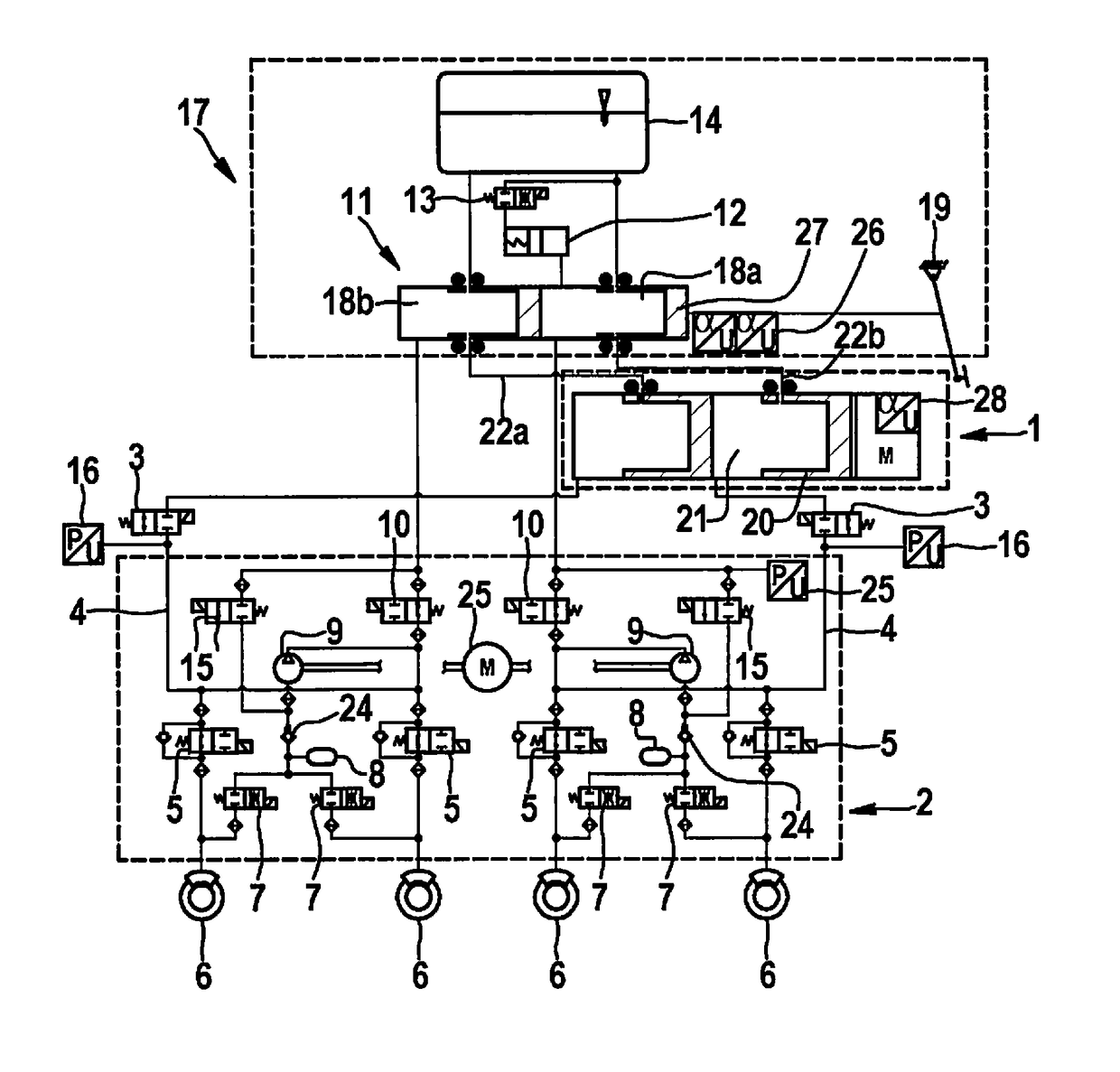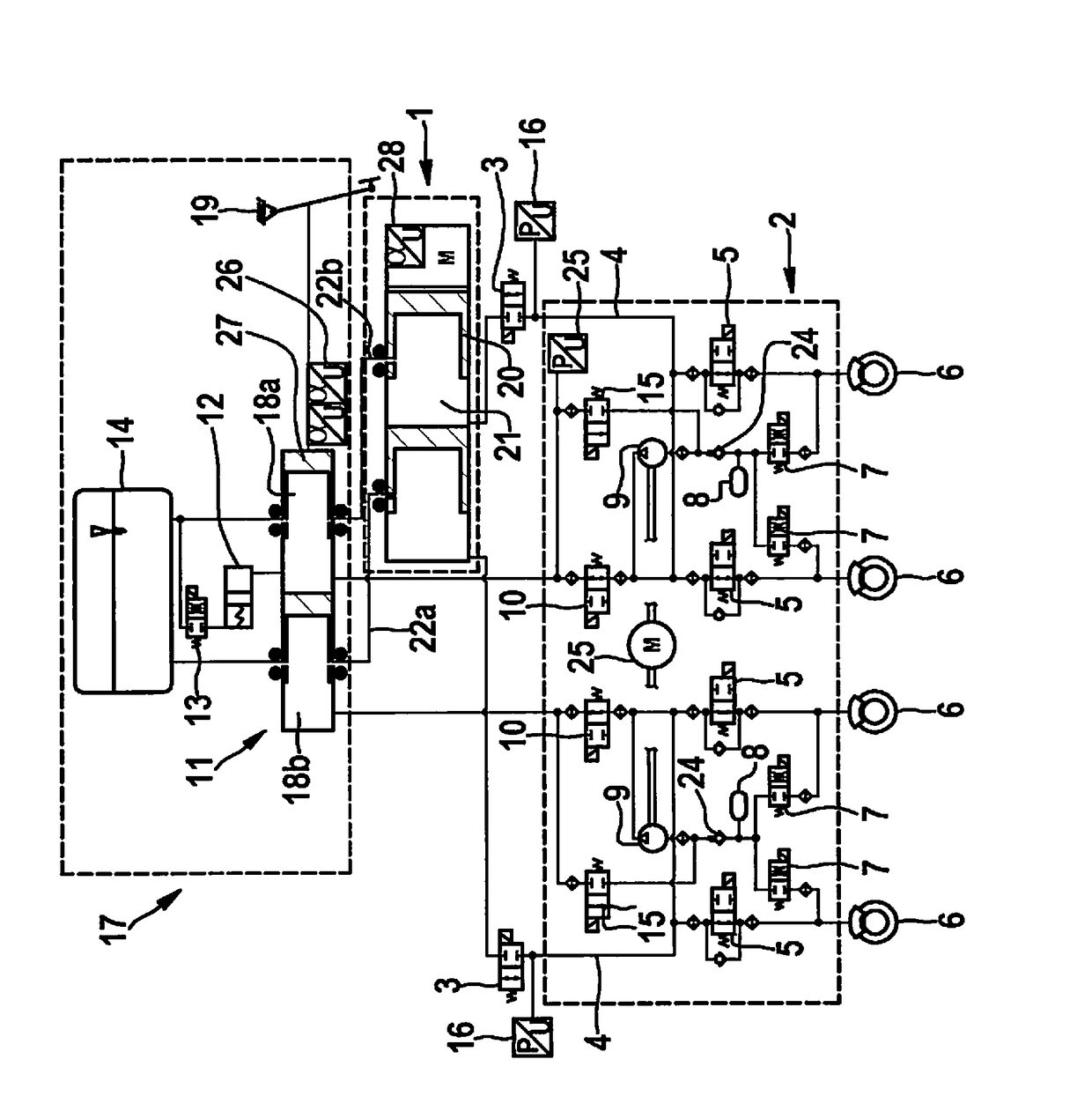Hydraulic brake system and method for operating a hydraulic brake system
a brake system and hydraulic technology, applied in the field of hydraulic brake systems, can solve the problems of affecting the pedal feel of the pedal, the hydraulic connection between the first pressure generating unit and the second pressure generating unit is no longer possible, and the pressure buildup within the hydraulic assembly is impossible, so as to enhance the safety and enhance the operation convenien
- Summary
- Abstract
- Description
- Claims
- Application Information
AI Technical Summary
Benefits of technology
Problems solved by technology
Method used
Image
Examples
Embodiment Construction
[0021]The braking system according to the present invention encompasses three main elements.
[0022]The braking system encompasses, on the one hand, a brake master cylinder 11 that is supplied with hydraulic fluid from a hydraulic fluid reservoir 14. A brake master cylinder 11 of this kind can be, for example, a conventional tandem brake master cylinder made up of two chambers that are in hydraulic communication with hydraulic fluid reservoir 14 via respective orifices. At least one of chambers 18a and 18b of the brake master cylinder is connected to a pedal simulator 12 that encompasses, for example, a piston-cylinder assemblage as well as an elastic element that can transmit to a driver upon actuation of the braking system a pedal feel that he or she expects upon actuation. A pedal feel is made up, for example, of a pedal force / pedal travel characteristic curve that corresponds to the respective pedal feel. The pedal simulator is furthermore lockable by way of a valve 13 that opens ...
PUM
 Login to View More
Login to View More Abstract
Description
Claims
Application Information
 Login to View More
Login to View More - R&D
- Intellectual Property
- Life Sciences
- Materials
- Tech Scout
- Unparalleled Data Quality
- Higher Quality Content
- 60% Fewer Hallucinations
Browse by: Latest US Patents, China's latest patents, Technical Efficacy Thesaurus, Application Domain, Technology Topic, Popular Technical Reports.
© 2025 PatSnap. All rights reserved.Legal|Privacy policy|Modern Slavery Act Transparency Statement|Sitemap|About US| Contact US: help@patsnap.com


